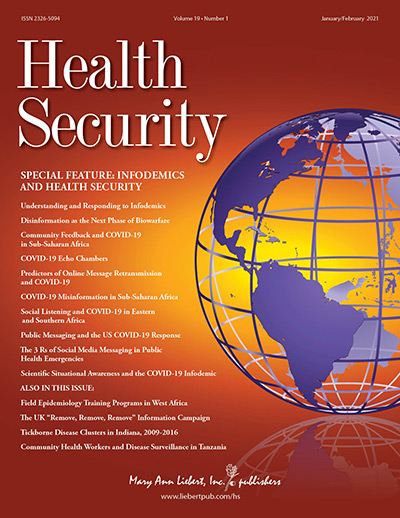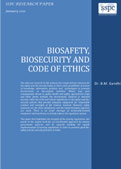Health Security: "Disinformation and Epidemics: Anticipating the Next Phase of Biowarfare"

ABSTRACT: While biological warfare has classically been considered a threat requiring the presence of a distinct biological agent, we argue that in light of the rise of state-sponsored online disinformation campaigns, we are approaching a fifth phase of biowarfare with a ‘‘cyber-bio’’ framing.




